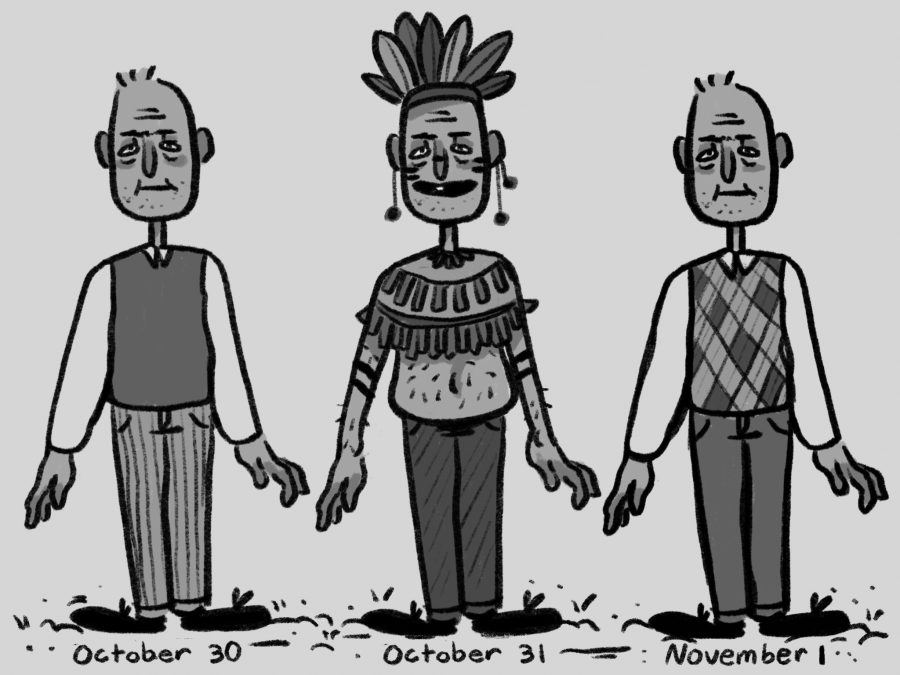Though Ariana Grande’s latest single “7 Rings” may have landed a place on Spotify’s Global Top 50 playlist, it also landed the artist in a pool of angry listeners that have accused her of culturally appropriating black culture in her lyrics.
Just as we begin to forget the topic that has slowly disappeared beneath the chaos of politics and pop culture, it somehow makes its way back into our headlines once again: cultural appropriation.
However, what we don’t realize is that cultural appropriation never disappeared, and will continue to exist in our culture as long as our world allows for an intermixing of different cultures.
It’s everywhere around us: in our music, fashion and even daily jargon. With more people and more cultures, there is more appropriation. Therefore, it is crucial for us to continue a conversation about this silently growing issue that most people don’t realize is becoming more acceptable.
An example of this can be seen in non-Native-Americans sporting headdresses at music festivals or concerts. Their misguided attempt at being “hipster” is one that many Native-Americans have pointed out to be very offensive and disrespectful.
Though it would be ideal to fully understand the cultural significance behind the headdress in Native-American culture, it is okay to simply respect its importance and choose a different accessory.
In 2017, a mother of a five-year old expressed her concern regarding her daughter wanting to dress up as Disney’s Polynesian character Moana for Halloween in a blog post.
This statement caused a lot of debate about what should and should not be considered appropriation.
Though striking a balance between cultural appropriation and appreciation is certainly difficult, the key is to prioritize sensitivity and respect.
For instance, while wearing a Moana costume is adorable, painting the child’s face brown or black is unacceptable, as it promotes blackface. The mother ultimately decided to dress her child as Scandinavian princess Elsa, steering away from possible backlash.
This may have been a wise decision considering the scale of controversy it could have caused on the internet.
However, if we begin to stigmatize certain cultures and choose to completely avoid them in our lives, it would become extremely difficult to do anything without sparking controversy.
As long as we keep a boundary of respect and are cautious to avoid possibly offensive expressions of others’ cultures, we should be allowed to express ourselves.
If people are unsure if something is or is not offensive, the safest route to take would be to make a decision after extensive discussion or research.
If people are still worried even after thorough consideration, safer alternatives are always available.
What is certain, however, is that this isn’t a conversation we should only have when preparing Halloween costumes or scrutinizing the lyrics of a hit song.
It must be one that we should be able to comfortably speak about and respectfully approach at any time, or else it will, once again, fade beneath our crazy, chaotic world, and the next time we see the words “cultural appropriation” would be in a headline during mid-October before Halloween.


































